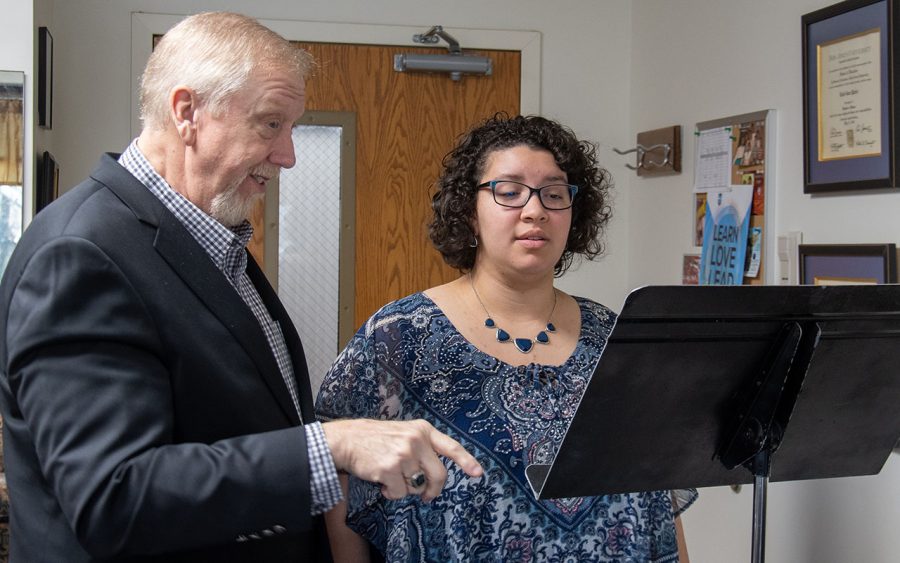At the start and close of every semester, students can audition for University choirs or private music lessons, but some non-music majors may wonder why they should seek such musical instruction.
Music majors and non-music majors pointed out some of the benefits of lessons that may answer these questions.
Weston Crowe, a junior music major, takes private percussion lessons from Rob Schoolfield, professor of music. Crowe said having a private music instructor gives him a constructively critical perspective on his playing.
“It really helps you improve because it’s another person watching your performance and your practicing,” Crowe said. “They point out mistakes, and they give you things to work on.”
Tiara Horne, a sophomore early childhood education major, took private piano lessons from Donna Crawford her freshman year and is currently in Lyric Choir, conducted by Dr. Eliezer Yanson. Horne said that the purpose of taking private music lessons or joining a choir is not to get a good grade at the end of the semester but to see personal growth and improvement and to feel a sense of accomplishment.
Horne said she enjoys the camaraderie among her fellow choir members as they learn and grow together throughout each semester. Horne chose private instruction in classical piano music rather than the hymns she was more familiar with to challenge herself and improve her classical music playing.
Private music lessons provide students with opportunities to work through challenging music with someone who understands it and can provide practical help. Crowe said he likes being able to bring difficult sections from the music he plays in band, orchestra and percussion ensemble to his private lessons, where his teacher can work through the music with him and give him practice tips.
While music majors are required to take private lessons, Crowe said lessons could benefit non-music majors as well, especially those who play in bands and orchestras with music majors. Crowe said that when all band members are receiving private instruction, they are more likely to play on the same level.
This lends to unity and cohesiveness during practices and performances, especially if students have the same instructor. At the end of every semester, each student performs before a panel of judges who analyze the student’s progress through the semester. Crowe said Schoolfield helps him pick out and adequately prepare pieces to play for the judges.
When she took piano lessons, Horne said she played for two music professors at the end of the semester who determined her final grade and noted her progress over the semester.
In Lyric Choir, Horne said members simply receive a pass or fail grade, solely dependent upon their attendance record. Since percussion involves multiple instruments, Crowe said he focuses on different instruments each semester.
Last semester, he took lessons on snare drum and marimba, while this semester he is taking lessons on marimba and timpani. Schoolfield gives Crowe exercises to practice during the week in addition to the pieces he plays for the various music groups of which he is a member.
“All the faculty here are just phenomenal, and they can help you progress so far,” Crowe said. Crowe said the monetary cost for taking private lessons is nominal compared to the time invested in students and the good it does for them.
Auditions are held in various professors’ offices in the Gustafson Fine Arts Center. Signs are posted on billboards around the building to indicate where and when auditions take place.
























































